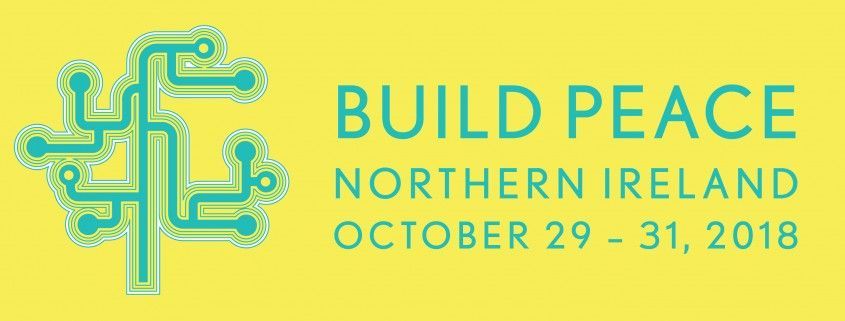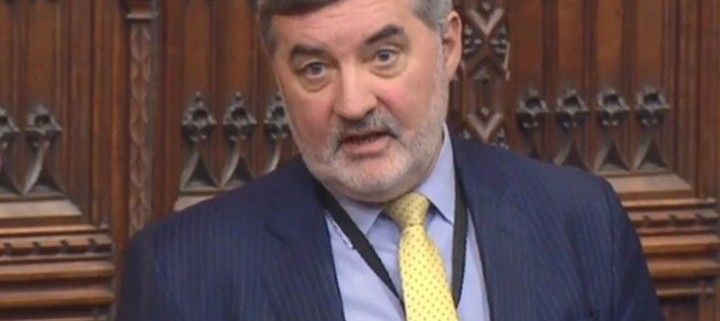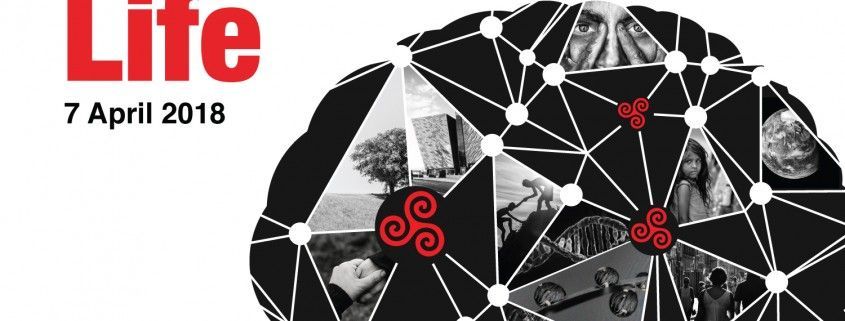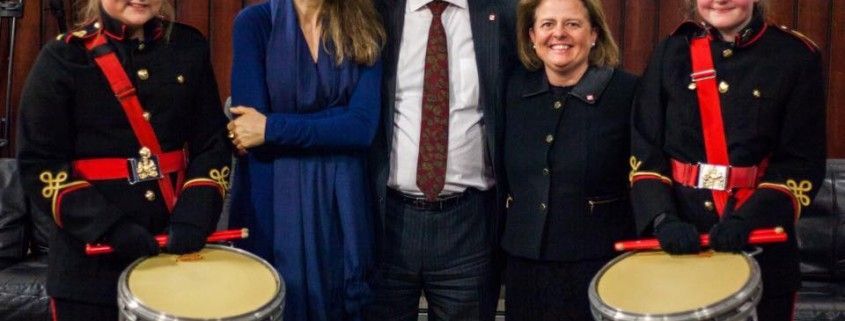Build Peace 2018: Re-Imagining Prosperity
Come and join us at the launch of Build Peace 2018 and learn how you can take part and contribute to this exciting international conference.
Every year, Build Peace brings together practitioners, activists, academics, policy makers, artists and technologists from around the world to share experience and ideas on using technology, arts and other innovations for peacebuilding and conflict transformation.
Build Peace 2018 is coming to Northern Ireland! It will take place from 29 – 31 October at Ulster University, Belfast. We will be Re-Imagining Prosperity and explore how technological innovation and creativity re-shape the economic opportunities, economic organisation, and economic power that impact how we live together in peace – in the Global North and the Global South alike.
We will organise our collective inquiry across three sub-themes:
• Creativity & Reconciliation: How can creative and digital economies contribute to reconciliation and coexistence?
• Inclusion & Social Cohesion: How can creative and digital economies help secure access to prosperity for all in conflict and post-conflict settings?
• Sustainability & Resilience: What new or under-utilised modes of organising linked to creative and digital economies contribute most to community resilience to conflict?
Programme will include short talks, dialogues, workshops, unconference, interactive exhibition, hackathon, film night and game jam. You can apply to contribute here: http://howtobuildpeace.org/registration by 30 June 2018. We are excited to hear your ideas!
Build Peace 2018 is brought to you in partnership by Build Up, Centre for Democracy and Peace Building, and our academic partner Ulster University. Read more at: http://howtobuildpeace.org.
Home of Hope. Marking 20th anniversary of the Good Friday Agreement.
This week in Belfast, over 200 international delegates from around the globe will come to Belfast for ‘Peace and Beyond’. This is an international conference focused on peace-building to mark the 20th anniversary of the Agreement led by the British Council in partnership with Queen’s University Belfast & Ulster University in association with CDPB. This international focus reflects the ripple of the Agreement and encourages us to realise that we can be global leaders in how to build the bridge between peace and reconciliation.
It will also be the week in which the world will reflect on the leaders whose vision and courage brought about the Agreement. My alma mater will host President Clinton, Senator George Mitchell, Jonathan Powell, Bertie Ahern, Lord Trimble, Monica McWilliams, Gerry Adams, Lord Alderdice, Seamus Mallon and many others. This generation understood the importance of compromise and the courage required in relationship building.
Our great hope must be that our current generation of politicians can summon the same vison and courage.
For me, this week will also be about our unsung heroes: the every-day peace builders.
There are many within our society who have been building bridges for their entire lives: often at great cost to themselves and their families.
I think of the extraordinary role of religious minsters; our journalists; our business people; our educators; our trade unionists; our community workers; our student movement; our women’s organisations; our youth organisations; our LGBTQ+ organisations; our ethnic minority organisations; campaigners for those with disabilities; our musicians, artists & entertainers; our community & voluntary sector; our entrepreneurs; our police service & emergency service providers; our healthcare professionals; our public servants, our politicians, our civic leaders and all those who have lived out the values of the Agreement.
I think of our victims – that we will find a way to bind up the wounds of the nation to build a peaceful future as a legacy to all who died.
I think of the incredible generation growing up in our home: the social entrepreneurs, young professionals, digital experts and ambitious business people. They are building our prosperity process – they understand their responsibility to give opportunity to all.
I think of our selfless philanthropists who have dedicated their passion, energy, time and money to build peace. I’m fortunate to be involved with The Ireland Funds who epitomise this dedication. 40 years: 3000 organisations committed to peace, reconciliation, sports, the arts and education supported by this innovative and dynamic organisation. Understanding that philanthropy equals progress.
It’s why this Thursday, as part of ‘Peace and Beyond’, every day peace builders will be celebrated across 7 venues with 30 organisations and 60 speakers . We will showcase just a snapshot of the thousands of inspiring, innovative and incredible people and organisations who day-in-day-out dedicate themselves to building peace and finding solutions to the complex issues we face.
These people and the thousands like them, represent my great hope for the place I am proud to call home. They represent the vision, courage, resilience and leadership that will continue our journey towards reconciliation.
In 2021, just 3 years from now, this island will begin a ‘second century’. For the Republic of Ireland: it will mark the second century of independence. For Northern Ireland: it will mark the second century of partition / the creation of the state of Northern Ireland.
I ask this question: by the end of the second century, what will we have achieved?
For me, the answer lies in the Agreement. New beginning; Fresh Start; Tolerance; Mutual Trust; Human Rights for All; Partnership; Equality; Mutual Respect; Exclusively Democratic & Peaceful Means; Good Faith; Reconciliation.
Let us take these ideals and realise them in a meaningful and inclusive way.
I believe the best way to answer this question is to ask the next generation. My two-year-old nephew Ollie will probably live to see the 22nd Century.
Therefore, we must have the courage, not to be bound by our own fixation of what the future might be. Rather to dare to ask: what kind of society do we want for our children.
We as a people have a unique opportunity in human history: to build upon our hard-earned peace, to reconcile and to re-imagine the potential of our relationships to build a home of hope.
International peace conference marks Good Friday/Belfast agreement
British Council’s international Peace and Beyond conference will be held in Belfast next month to mark the 20th anniversary of the Good Friday/Belfast Agreement.
Taking place from April 10-12 on the 20th anniversary of the Good Friday/Belfast Agreement, the conference provides an opportunity to look beyond Northern Ireland – and towards other international models of peacebuilding in countries including South Africa, Colombia, Lebanon, and the Western Balkans.
Lord Alderdice: entrench the Principles of the GFA in the EU Withdraw Bill
Our Chairman Lord Alderdice, together with Chris Patten (Conservative), Angela Smith (Labour) and Onora O’Neill (Cross-Bench) put down an amendment to the Bill to entrench the Principles of the Good Friday Agreement. Here is why Lord Alderdice felt it was necessary –
European Union (Withdrawal) Bill
21 March 2018 Volume 790
House of Lords, Committee (9th Day)
Lord Alderdice (LD): My Lords, I am very grateful to the noble Lord, Lord Patten of Barnes, not only for the passionate and articulate way in which he introduced the debate on this group of amendments—particularly Amendment 261—but also for the lifetime of commitment that he has given to the issues of Northern Ireland. That length of commitment speaks a great deal to me, as someone from that part of the United Kingdom. Read more
CDPB to host TEDxStormont Salon on Inspired Life
Come to share, experience and interact with stimulating ideas for an inspired life.
At our first TEDxStormont Salon event we will watch TED Talks, host a few live speakers and spark discussion about the talks we’ve witnessed. It will take place on Saturday, 7 April from 10am to 3.30pm in the Long Gallery, Parliament Buildings, Stormont.
We will draw on our wisdom and our limitless imagination and consider the synergy of the mind, body and spirit. We will explore how to live in a more harmonious and sustainable way.
We will close with a yoga inspired practice for Every Body curated by Dr Elizabeth Welty, educator and Flow Studio founder.
Music Unite: A night of music and friendship
Centre for Democracy and Peace Building was delighted to host Music Unite event in The Duncairn as a part of Imagine Belfast Festival of Politics and Ideas. The event brought together Patrick Ayrton – internationally renowned conductor, harpsichordist, organist and professor at the Royal Conservatoire of The Hague and celebrated German violinist Daniela Helm with Cormeen Rising Sons of William flute band for a very special night of music and friendship.
The evening included an amazing performance by Frasier Hickland, a 19-year-old pianist and organist from Lisburn and fascinating talk by the award-winning author Clare Mulley about Krystyna Skarbek, Britain’s first female special agent during WWII.
We also celebrated the success of ‘For Your Freedom and Ours’ shared history programme with Maciek Bator.
This project is supported by the Executive Office’s Together Building United Community programme.
Read our Music Unite report HERE.






